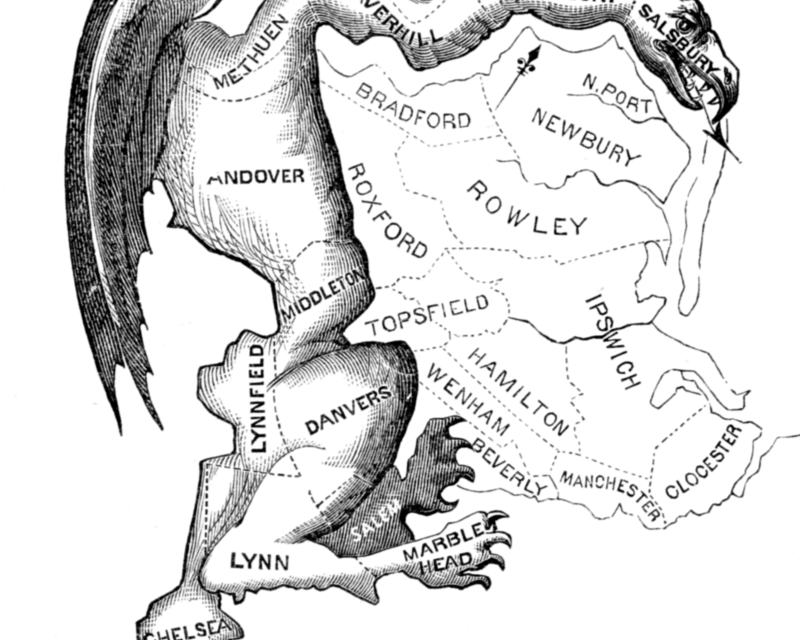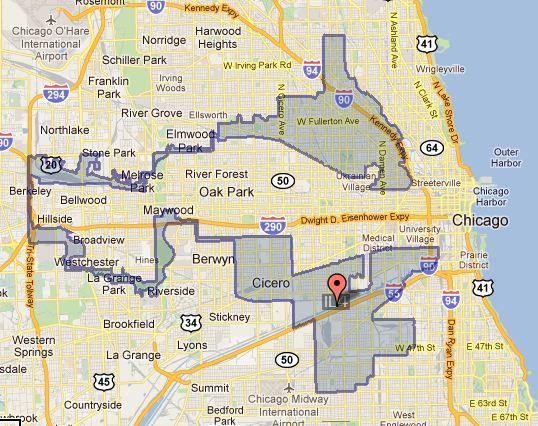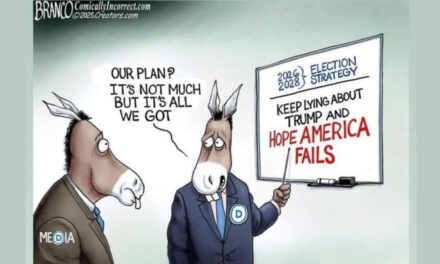
Gerrymandering is a bipartisan problem

To understand the debate over gerrymandering, you have to understand what is at the core of the issue. It may be a problem that has no solution.
Every ten years – based on the results of the National Census – each state is obligated to redistrict congressional districts to account for gains or losses in seats based on changes in the population. States have the right to establish the process by which those new maps are drawn. Some leave it to the legislature. Others may establish so-called bipartisan or nonpartisan commissions – although there is never a truly bipartisan or nonpartisan appointed government body. One party or the other has the major power. But it is the state legislatures that ultimately have the final decision on which of a variety of maps is selected. They often override the commissions.
The federal government only has two interests in the activity of the states. Legislatures may not draw maps that are prejudicial to any specific interest group. In other words, maps cannot be drawn to take away anyone’s constitutional rights. The federal government does, however, have greater potential power over the redistricting for federal offices – essentially congressional seats.
The Constitution and case law also directs that all districts should be “contiguous and compact” – meaning that they cannot have unconnected “islands” and they cannot meander over geography to the point where a district looks like a … salamander. Ergo the term “gerrymander” (properly pronounced with a hard “g”).
The “gerry” comes from one of America’s Founding Fathers and Governor of Massachusetts, Elbridge Gerry. Yes, the issue is as old as the Republic.
The word did not arise out of congressional redistricting. In 1812, the Boston Gazette coined the word gerrymander in opposition to Governor Gerry’s highly partisan state senate map. Accompanying the article is the now famous drawing of that senate district in Essex County — depicted more like a dragon than a salamander, but the popular term took hold.
The unending tradition in American politics is that the party that controlled the state legislatures drew the maps – and they were always to the advantage of the party in power. Well duh! It was – and is — one of those “elections have consequences” realities. In fact, there is no way to legislatively eliminate the partisan advantage. It is part of the American political DNA.
Despite the complaint of the Boston Gazette and the “contiguous and compact” directive of the Constitution, maps of all shapes have been created to give the party in power the advantage. And upon every decennial anniversary, the controversy rages between those empowered to draw the maps and those who are not – usually they battle on a party-line basis. The party out of power often hides behind concocted so-called “good citizen groups.” Almost always, the party out of power loses.
And so it is again this year.
Washington Democrats – and those on the left – are trying to take away the rights of states to create their own maps – much in keeping with the left’s unrelenting efforts to take away the constitutional rights of the several states on almost any issue. Their efforts are always to impose federal authority and, at the same time, shift more and more power to unelected entrenched bureaucrats.
What makes these national efforts to control local redistricting onerous is that the conflicts arise when the party controlling Washington is different than the party controlling the state. If state redistricting is tainted by partisan politics, at least it is in the hands of the party to which the voters of the state gave the power. With today as the example, the Washington Democrats want to nullify the legislative activities of the state-level Republicans put in office by the people.
If you look at redistricting state-by-state, you will see that Republican state legislatures are drawing maps beneficial to Republican candidates. Democrat state legislatures are drawing maps beneficial to Democrat candidates.
What is disturbing about this season is that the highly partisan pro-Democrat major media is on a full-scale attack on only the Republican states. Virtually every criticism that they level at a Republican-dominated state can be equally leveled at Democrat-dominated states.
They put up on the screen some strangely shaped districts in Republican states, but ignore those equally or even more outrageous maps found in Democrat states – such as the “headphones” district in Illinois.

Republicans have a current advantage across the nation because a large number of people have moved from blue states to red states. That means that Republican states will automatically have more members in the 118th Congress. And with control of the mapping, that number could grow exponentially.
It was recently reported that Republican apostate Congressman Adam Kinzinger was redistricted out of his seat in Illinois. But this was not at the hands of Republicans. It was done by the very dominant Illinois Democrat legislature in an attempt to maintain the same number of Democrat congressmen despite the fact that Illinois is losing seats based on population exodus.
We know that redistricting is influenced by partisan politics – and has been since the nation’s founding. We know that the Supreme Court has been rather accommodating in terms of districts that do not seem to meet the “compact” requirement.
So, what can or should be done about the situation. Nothing. Redistricting is best left up to the states –and to the folks that the voters elected to the state legislatures. And despite all the partisan – and I dare say hypocritical caterwauling – there is nothing that can be done, anyway. Both political parties have a vested interest in maintaining the current system. First, because it is anti-democratic to take away the powers of legislators and the politicians that the people put into office. Second, the parties want to have the benefit of redistricting if and when they assume power in the future.
Much in the manner of the periodic locusts, this issue rises and falls every ten years. It causes a lot of commotion at the time — but not forever. Very shortly, the gerrymanders will soon return to their decennial hibernation.
So, there’ tis.


























Gerrymandering is a national problem occurring every ten years after the census. How to fix it is gonna be a federal case. Currently there is little doubt that Republicans are the lead dog on this sled ride, an strategic victory started by the Koch Bro’s before the reign of Obama. Wisely, they put their libertarian muscle at the state and local level realizing they had less national clout. They adopted the “be careful what you ask for” as the tea party emerged victorious in the Obama era midterms, a non-libertarian force that is taking over today with Trumpism. Neither are the Koch’s first choice, but “there it tis.” Democrats have focused nationally which not only hurts us at the stat and local level, but the Clinton campaign basically forgot rural America, the states in the middle…. If the Democrats to take back, and if and when they do, gerrymandering will flow the other way. Still bad.
I don’t agree that nothing should be done Larry. What we need is a national framework, laws if you will, the the states can operate inside of. Enough of this census (and beyond) maneuvers to stack the deck and rig the game. I realize that court cases define guidelines, and that the Supreme Court has said “hands off,” but seems that a national framework that ends gerrymandering or allows infractions to be legally dealt with quickly would benefit the nation.
Posting lies again. You people want gerrymandering as long as it suits your party
Frank … as a liberal Democrat, I understand your tendency to seek federal involvement in resolving almost any issue. I, on other hand, is a devotee of the federal system established by the founders. They recognized that the greatest danger to personal freedom is an all-powerful central government. So, they created a Constitution that places most of the operations and regulations of government in the hands of the several states. That was made clear in the 10th Amendment that reserves to the states and the people all activities not specifically granted to the federal government in the Constitution. Obviously, that Amendment has be essentially nullified by the government in Washington under the assumption that ONLY the federal government is sufficiently knowledgeable and sufficiently noble to look after the interests of the people. The ongoing power grab was fueled by the imposition of the national income tax with automatic withholding. Overtime, Uncle Sam became more directly involved in our daily lives — at the expense of personal freedom. The federal government has every constitutional right to protect the constitutional rights of the people, but not to regulate daily activities at great expense to the people. I sometimes think that the shift of power to the central government is the aging process of a democratic republic. It is how it dies. Sooooo …. I am constantly opposed to the constant efforts to create a more powerful more costly central government — one that is least influenced by the will of the people. Ergo, I oppose efforts to give the federal government increased regulatory authority over the election process in the various states.
Larry,
Generalizing based on partisan stereotyping you conclude that I: “as a liberal Democrat, I understand your tendency to seek federal involvement in resolving almost any issue.” First Larry, I do not know how many times I can say I am all for State’s Rights, whenever it makes practical sense and the results of 50 different experiments benefit the nation. With, as the Founder’s stated, a leaning towards less federal, more state UNLESS there is a national concern that crosses State lines like interstate commerce. So, pardon my french, but gfy and your assumptions on who I am. That’s the very pushback you have had in the past, and the present, for Brau in his assumptions of that other Larry who you claim is not you.
Well, frankly, I claim this Frank is not the Frank that I am frank about. Put that in your Stetson and wear it.
“I, on other hand, is a devotee of the federal system established by the founders.” So am I as often stated here, but you have missed that and already concluded something you invented to tell me who I am and what I believe?
You know that both federalism advocates and anti-federalism advocates both sat at the founder’s table. Matter of fact, the anti-federalists were in the minority. That’s why the federalists had to throw them a bone. To keep them at the table. Same way that slavery snuck into our nation’s “all men are created equal.” kind of, beginning. The federalist issue has been a contention way before the Constitution. And you damn well know it. You chose to forget since it suits you spin allowing you to generalize all liberals and stereotype me. In error.
“They recognized that the greatest danger to personal freedom is an all-powerful central government.” Oh come on Larry; that’s like saying that Republicans embrace infrastructure. What a crock. Everyone knows that most of the founding fathers were Federalists, that the first political party in the US was the Federalists and that the government was controlled by Federalists for the first three years of it’s existence. Totally controlled. Hamilton, Jay, Addams, Marshall, Madison, all Federalists. Even the Father of Our Country, George Washington, is considered a quiet Federalist.
Madison the Federalist, drafted the Constitution. Jefferson, the Democrat (anti federalist) inspired the Bill of Rights, no duh there, it’s called payoff or compromise if you feel better. For the Bill, Madison, the Federalist, authored the draft. States’ rights was a big payoff there, and a good thing IMO.
Given our history, technology advances, communication enhancements, the taming of the new world, one could only expect the Federal Government to become stronger, the States weaker, I mean it really couldn’t go farther in the other direction torwards greater States’ Rights than our beginning. Hell, even Federal taxation was an afterthought to our anti-federalist beginning.
In the case of gerrymandering, gee, the states have had since the dawn of the country to fix and they have failed. Over 200 years of failure; failure proven every ten years. Should the Fed take over? Of course not. But the Fed could create “a national framework,” laws if you will, that the states can operate inside of.” That’s all I said Larry, don’t really see this as the Constitutional crisis nor change in my belief about State’s Rights, nor the 10th amendment which clearly states: “The powers not delegated to the United States by the Constitution, nor prohibited by it to the States, are reserved to the States respectively, or to the people” The Federal Government could easily construct a framework to avoid any gerrymandering for all elections that are Federal in nature. And I believe the states would use the same framework for state and local elections as well. Tom’s grid for example.
The bottom line here Larry is you are wrong about me, you seem wrong in your US history of the founding fathers and federalism, and you can just gfy with your mischaracterizations of me with the same vehemence that you place yourself on Brau’s interpretations of you.
Actually I think there is an easy solution. Make a grid of squares and lay the grid on each state. Let each side agree to the way the grid is positioned. That becomes your districts. Then as census indicates movement, the squares reconcile seats. Simple and stable!
Tom …. your idea is worthy. But as a person who has been involved in redistricting issues several times in my lifetime, I have to say that it will not work. You will more than likely have districts (squares) that violate the constitution. Also, most states are not square and once you start to adjust for irregular state borders, the entire grid is likely to collapse. And you have to keep in mind that congressional districts are not the only issues. You have state legislative districts and an endless array of districts in counties and municipalities — plus special districts. It is the old problem of putting a square peg in a round hole. If you were ever involved in the actual negotiations and hearings relating to redistricting, you would see the problem.
Population isn’t evenly distributed, so a grid wouldn’t work. One grid might have 50,000 people, the next only 5000. In my state, we vote at town halls, except in the larger cities. For State Rep districts, they start adding up populations of towns until they get groups of 3 or 4 towns that are about the same population. 4-5 districts get a Senator, and the two halves of the senate districts get a Congressional Rep and Senator. Of course, it still gets shifted around every 10 years, because the towns and the districts are not evenly divided between parties either, so there’s always jockeying for that too.
sssssh, come on, you just gots to throw these dogs some bones some times…… :>)
Quit trying to make us think that you’re intelligent. You’re dumber than a box of rocks. Boy.
can i use vape juice with exus snap